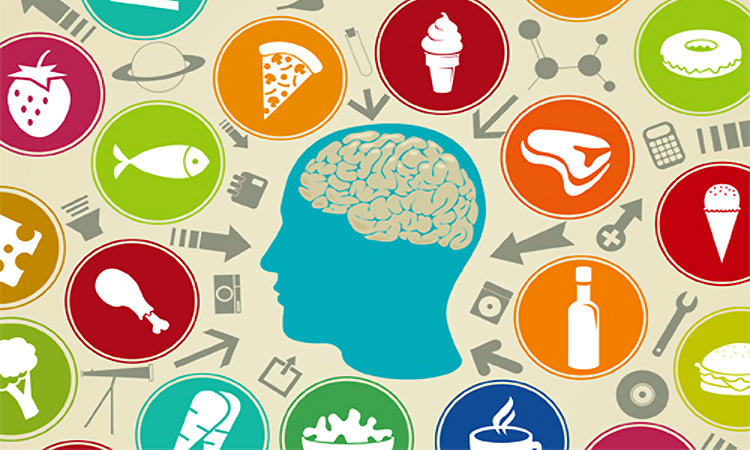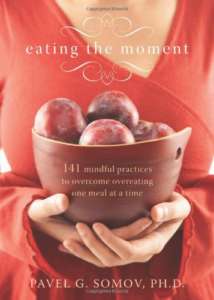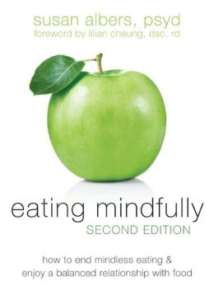
Imagine for a moment that you’re a middle-aged guy. You haven’t exactly been unfit for most of your life, but no one would ever have mistaken you for a Greek god. These days, your lifestyle is something less than high impact; you are a freelance writer who spends virtually all your days at the computer, and it shows. When a series of disturbing symptoms—numbness in the feet; an overactive bladder; a tendency to swoon after eating; occasional shortness of breath—sent you to the doctor, you weren’t surprised when the diagnosis was Type 2 Diabetes.
My doctor, who is as kindly and nonjudgmental a person as you will ever meet, had always urged me to lose weight; that was one of the reasons I saw him as seldom as I did. Why go out of my way to be criticized when I can torture myself for free?
So when my doctor told me that I should lose at least 10% of my weight, I could no longer ignore, avoid, or deny the issue. I don’t eat a lot of sweets or fast food; I’m not a heavy drinker or a compulsive snacker. But I do eat much more than I need to. It’s a bad habit, and like many bad habits, it helps me cope. When I grieve or yearn or burn, what I feel, as often as not, is hunger.
So where to turn? Most diet books and diet programs are geared toward women; even the gender-neutral ones presume a much greater interest in the subjects of food and eating than I could ever muster. It’s not that I don’t love food. I just don’t want to think about it analytically. I don’t have the patience to pore over charts and diagrams, counting calories and carbs and glycemic loads and planning my menus weeks in advance. And while the idea of doing just one thing to lose a lot of weight in a hurry—whether it’s an all-bacon, all-grapefruit, or all-cabbage-soup diet—is appealing in its simplicity, it’s also self-defeating over the long term. What good would it do me to take off 10 or 20 pounds in a month, if I put them back on again just as quickly once I resume my old ways?
Dieting challenges old habits, but in a punitive rather than a constructive way—it tells you that some foods are bad and some are good; and that you are either doing well or doing poorly. With mindful eating, you can eat whatever you want.
The ideal solution would be to fix all those hurts at the source, but suffering is an inextricable part of being human. Even the most beautiful among us feel ugly sometimes; even the most extravagantly loved feel rejected. Still, the first step toward managing one’s demons is to call them by their right names. A Buddhist might call them “desires” and say that you need to detach yourself from them.
When I was little, I picked a book of Greek myths off my parents’ bookshelf that wasn’t quite appropriate for a child. I vividly remember reading about King Erysichthon of Thessaly, who ordered his men to cut down a grove of trees that was sacred to Demeter, the goddess of the harvest. To punish him, Demeter afflicted the king with an insatiable hunger. He ate himself out of house and home; eventually he sold his own daughter into slavery to raise more money for food. Finally, he devoured himself.
The story both haunted and vaguely titillated me; as young as I was, I understood that there was something erotic about the idea of a longing that could never be fulfilled. “Hunger and love are what move the world,” the poet Friedrich Schiller wrote in “The Philosophers” (a poem Freud famously quoted in Civilization and Its Discontents). But if eros is both the source of life and the impetus for civilization, it is the essence of addiction as well.
Not that I’d presume to compare my overeating to the hell of drug or alcohol addiction; I’m not as self-dramatizing as that. I’m just a soft, middle-aged man who piles food too high on his plate. But as every 12-stepper learns, until we acknowledge our lack of control, we are powerless to do anything about it. We can’t rewire our minds, in other words, until we recognize that there is something wrong with their circuits.
A dieter, to borrow another term from AA, is a little like a dry drunk—someone who stays sober by willpower alone, without changing any of the underlying conditions of his or her life. If food is still your drug, a diet will only prolong the agonies of withdrawal. You have to change your relationship to it, to turn it back into a source of nourishment.


So instead of dieting, I stocked up on books about mindful eating. “The challenge,” as Pavel G. Somov, Ph.D., puts it in Eating the Moment: 141 Mindful Practices to Overcoming Overeating, One Meal at a Time (New Harbinger Publications), “is to awaken the eating zombie. The goal is…to help you break the behavioral chains enslaving your appetite.” Many of the specific practices and exercises Somov suggests were hit-or-miss for me—too many of them involved journaling, essay writing, or sharing with supportive friends. But that’s just me. The overall arc of his book is insightful and smart.
If eating serves an emotional purpose for you, he says, then allow it to do just that. Only be aware that that’s what you’re doing. If you choose to medicate yourself with food, do it responsibly and in fully mindful awareness. Find out which foods comfort you the most, and learn how much of them you need to consume before you can achieve the desired effect. One cookie, two cookies, three? Likely it will be much less than a whole bag. Why not ritualize it? A lot of eating serves a ritual purpose, after all. Meals bring families together; they can express your ethical values (just ask a vegan); and they can serve a spiritual function as well (ask a believing Christian who’s just taken the Eucharist, a devout Jew who’s consuming a piece of matzoh at a family Seder; or a Muslim as he breaks his fast at the conclusion of Ramadan).
Dieting challenges old habits, but in a punitive rather than a constructive way—it tells you that some foods are bad and some are good; and that you are either doing well or doing poorly. With mindful eating, you can eat whatever you want.


But the trick, as Susan Albers puts it in her classic Eating Mindfully: How to End Mindless Eating & Enjoy a Balanced Relationship with Food (New Harbinger Publications), is that “it is likely that you will choose not to eat everything. The more you tune into what and how you eat, the more particular you become about what you consume.” Albers’s book was one of the first to introduce the concept of mindful eating when it was published a decade ago. Now in its second edition, it is still required reading for any one of us who wants to change our relationship to food.
Most overeating happens on autopilot. Either overeaters genuinely don’t realize that they are shoveling in more than they need to, or they binge as furtively and with as much shame as any drug addict or secret drinker. Mindful eaters understand and accept that they’re bound to slip sometimes—because someone offers them a food gift, or they’re at a celebration where everyone else is eating cake, or they’re stressed beyond endurance—but when that happens, they forgive themselves and move on.
“Beating yourself up with criticism only makes you feel worse and can prompt more mindless eating,” Albers writes. “The cycle goes like this: overeat, feel bad, criticize yourself, feel bad about yourself, eat to soothe yourself, repeat. Compassion, on the other hand, stops this cycle by helping you examine the entire sequence of events rather than judge it.”
What appeals to me in both books is that they acknowledge that mindful eating—like mindfulness in general—is a practice that one never quite masters, and that food and eating are just the tip of the iceberg.
You only get one chance to live your life. Wouldn’t it be nice if you could stop sleepwalking through so much of it?



6 Comments
Karen Fendig Hoffman
Thank you. I needed that! I love how you got down to brass tacks about getting to the core and not just treating the symptoms. Nourishing ourselves can be such a beautiful endeavor if we only let it be! You have inspired me to work on that. So sorry about the diagnosis, but all the best in learning how to work with it. Namaste.
Jackie Hutchings
I learning how to eat mindfully a couple of years ago. It has transformed the way I feel about food and how I eat it. There is something very liberating about taking control and not being driven by emotional eating and guilt. I no longer have any banned foods in my life. I can really enjoy occasional treats and snacks knowing that, when I eat mindfully, I won’t gain weight.
Arthur Goldwag
Strangely enough, I had my first follow-up appointment with my doctor yesterday and my lab results came back this morning. They’re as good as I could have hoped for–and I weigh 15 percent less than I did in the spring. Something is working…
faye
Hey, that’s great! And an inspiring example for the rest of us.
Anna
Thank you for this article. I have struggled with my weight all of my life. Now I am 48 and going through menopause and my weight has ballooned. My eating and cravings are out of control so I cannot blame this 30 pounds I have gained in the last two years completely on menopause. But it certainly doesn’t help in any way. I am getting ready to go on the diet drug Belviq but realize that if I don’t change my relationship to food, even if the drug helps, in the long run I will be right back to square one. I have been on every diet known to mankind. Sure, I’ve lost weight from time to time but I always put it back on. I hate the word diet, have become averted to salads and vegetables. I have been on so many diets that all I eat is salad and vegetables that I just don’t want them anymore!!! This is not good. And, like you, if I have to keep food journals and count calories I will not stick to any “eating plan”. So, you have inspired me to start investigating this approach. This article hits the nail on the head! Thank you 🙂
Rose Caiola
For many years, I had a love/hate relationship with food and mindful eating was a foreign concept to me. Always on the go, I didn’t take the time to truly taste what I was eating or savor the flavor. I’ve recently been making more of an effort to be present for each bite, and it’s exciting to see what an impact it’s made on my overall health and wellbeing.